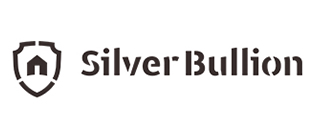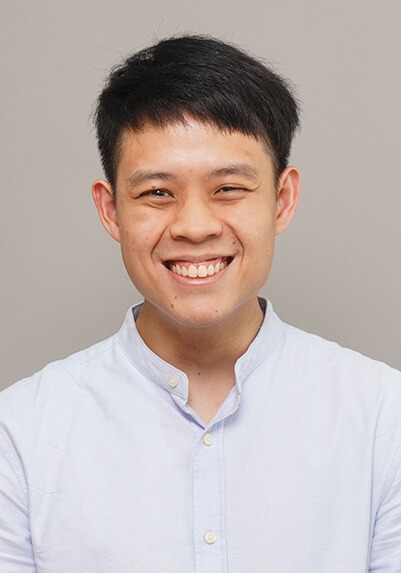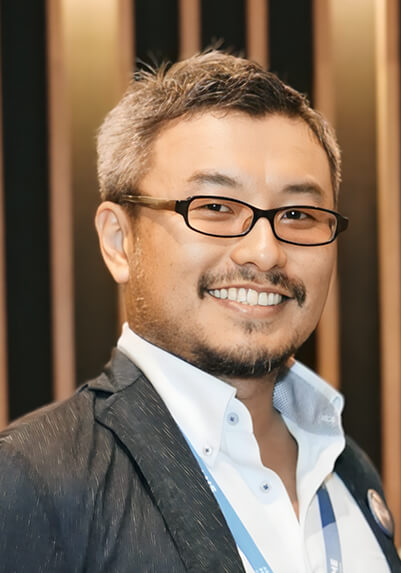Navigate
Article List
- SBMA News
By Albert Cheng, CEO, SBMA
- Gold Market Integrity: Advancing Global Standards
By Sakhila M. Mirza, Executive Board Director and General Counsel, London Bullion Market Association (LBMA)
- Shanghai Gold Exchange: Building a Better Future for the Global Gold Market
By Jiao Jinpu, Chairman, Shanghai Gold Exchange
- Feature | WGC – Year in Review
By Andrew Naylor, Head of ASEAN and Public Policy, World Gold Council
- Gold Investments During a Recession: Be Sure of What Lies Beneath
By Gavin Soon, Senior Sales Manager Asia, Hitachi High-Tech Analytical Science
- The Future of the Gold Investor
By Vikas Shenoy, Head of APAC Origination & Partnerships, InfiniGold
- Platinum Set to Soar
By Weibin Deng, Head, Asia Pacific, World Platinum Investment Council
- Further Upside for Precious Metals Prices in 2021
By Nikos Kavalis, Founding Partner, Metals Focus
- Improving Gold’s Physical and Digital Traceability
By Abhinav Ramesh, Founder, Chainflux
Article List
- SBMA News
By Albert Cheng, CEO, SBMA
- Gold Market Integrity: Advancing Global Standards
By Sakhila M. Mirza, Executive Board Director and General Counsel, London Bullion Market Association (LBMA)
- Shanghai Gold Exchange: Building a Better Future for the Global Gold Market
By Jiao Jinpu, Chairman, Shanghai Gold Exchange
- Feature | WGC – Year in Review
By Andrew Naylor, Head of ASEAN and Public Policy, World Gold Council
- Gold Investments During a Recession: Be Sure of What Lies Beneath
By Gavin Soon, Senior Sales Manager Asia, Hitachi High-Tech Analytical Science
- The Future of the Gold Investor
By Vikas Shenoy, Head of APAC Origination & Partnerships, InfiniGold
- Platinum Set to Soar
By Weibin Deng, Head, Asia Pacific, World Platinum Investment Council
- Further Upside for Precious Metals Prices in 2021
By Nikos Kavalis, Founding Partner, Metals Focus
- Improving Gold’s Physical and Digital Traceability
By Abhinav Ramesh, Founder, Chainflux
Singapore Re-Opens Borders for Business
By SBMA
Published on January 12, 2021

While the rest of the world is grappling with a resurgence in Covid-19 infections and another wave of lockdowns, Singapore Prime Minister Lee Hsien Loong said in a speech on December 14 that the country is ready to open its borders for business in a safe and controlled manner. Singapore’s segregated travel lane for business travellers from all countries is expected to begin in the second half of January 2021.
According to the Ministry of Trade and Industry (MTI), travellers using the lane will be transported from the airport to dedicated facilities where they will stay and work, and undergo regular testing as part of health and safety protocols. They will be able to conduct meetings with local visitors and with other traveller groups, with safe management measures in place, while in the facilities.
At the same time, Prime Minister Lee announced that the country is ready to move to the next phase of its approach for the economy to resume business operations. From December 28, capacity limits will be eased in public places like malls and attractions, and at places of worship, and groups of up to eight will be allowed to congregate, up from the current maximum of five. Restrictions on workers returning to offices may also be relaxed.
Larger, in-person events are already on the cards for 2021. The World Economic Forum’s decision to move its annual meeting from Davos, Switzerland, to Singapore in May is a vote of confidence by the international community in the country’s management of the Covid-19 pandemic and its ability to host high-level events amid the current situation.
This bodes well for the precious metals industry, as travel restrictions and decreased frequency of flights posed large logistical challenges given that industry transactions are generally cross-border, and a large part of the business depends on the free flow of people around the world.
Early Efforts
To contain the spread of Covid-19 in Singapore, the country entered into a nationwide “circuit breaker” on April 7 – a partial lockdown that required the closure of all non-essential workplaces and businesses, which lasted until 1 June, when the country embarked on a three-phased approach to safely resuming activities. During the safe re-opening period, businesses that operated in settings with lower risks of transmission were allowed to resume activities with Safe Management measures, but non-essential activities and social gatherings were still prohibited.
With community infection rates remaining stable and no new large clusters emerging, the country moved to Phase 2 on 19 June, which allowed small-group gatherings of up to five persons and the re-opening of retail businesses. Working from home remained the norm, and large-scale events and venues, such as conferences, exhibitions, concerts and trade fairs stayed closed.
During this period workplaces were allowed to have up to half of their staff in the office, with employees allowed to be at their workplaces for half their working hours. In-person work-related events such as conferences and annual general meetings were allowed to take place at third-party venues from 22 October, with up to 50 persons per event. The Singapore Government also increased the number of “green lane” arrangements with other countries and territories to facilitate essential short-term business and travel.
The country managed to deal with Covid-19 adequately, with continued adherence to safe management measures, pre-event testing at large-scale and higher risk activities like wedding receptions, live performances, sports events, etc., and an expansion of digital contact tracing tools.
SBMA Members Look Forward to Phase 3
Brink’s, being a provider of essential services, could continue its business while observing government guidelines and safety measures and with reduced staff in the office. Currently, many staff are still partly working from home. Being an international transportation business, the closure of the borders, the great reduction in flight options and the increased airfreight rates all hamper our business, but we have adapted to the new reality and are working with whatever resources are available, constantly updating ourselves, as the situation remains very fluid. For Brink’s and Brink’s customers, the opening of borders and free flow of travellers are essential.
Jos van Wegen, Head of Brink’s Global Services – Singapore, Malaysia, Indonesia & Brunei
When the social distancing guidelines were imposed, we had to limit the number of clients visiting us and were unable to bring back all our staff back to the office to support the influx of clients due to the recent volatility in precious metals prices. We look forward to phase 3 as we can welcome more staff back to the office to support our clients’ sellback and collection. Singapore has to open its borders as the country is dependent on global networking, trade, tourism and hosting global events. Moving to phase 3 with controlled and cautious opening of borders will only do Singapore’s economy good and I am definitely looking forward to that.
Brian Lan, Managing Director, GoldSilver Central
The circuit breaker guidelines initially posted us a minor administrative disruption, but the company adapted quickly. We are now preparing for phase 3 and the reopening of borders. As we have five employees in Singapore, we will continue to rotate employees to work from home, but look forward to resuming business as usual. An interesting and positive observation during the lockdown is that it has forced our neighbouring country to engage in more business with us.
Adrian Goh, Marketing Director, YLG Bullion Singapore
In terms of phase 3, StoneX will continue to be guided by the Singapore Government and MAS. We are preparing for a greater return to the office, but will maintain a Team A/B structure as part of our BCP arrangements meaning a maximum of 50% of staff in the office at any one time. Rather painfully, this means it is approaching one year since certain members of our precious metal team were able to meet with others. No plans around overseas travel are currently being considered although, when permitted, this will be massively welcome on several fronts; including visiting existing clients, marketing trips, visiting overseas offices of StoneX, and industry networking and conferences. Increased passenger aircraft flights and capacity will hopefully drive back down some of the cost increases we have seen and reinstating routes that have been cancelled and/or severely disrupted. It is also worth mentioning that this does not relate to just gold and aircraft freight, with disruption and bottlenecks becoming increasingly evident in respect of sea shipments of silver.
Martin Huxley, Global Head of Precious Metals, StoneX Group
We initiated business continuity planning and remote access, pre-empting such a scenario, thus disruptions were minimal when the circuit breaker was imposed. During this period, we experienced high volatility and volumes, and the inconveniences of the circuit breaker were nonetheless felt especially in areas like logistical inconvenience and supply and demand inefficiencies with borders being shut down. For Phase 3, and as borders open, we look forward to having a more stable market and trading opportunities in the economy. We are hopeful that as Singapore goes into Phase 3 in 2021, and with its infrastructure, continued monitoring of the health situation, and good international communication, we look forward to increasing cross-border transactions.
Dawn Chen, Director, Global Sales and Trading, MTS Gold Group
During the circuit breaker and phase 2, overall production output and productivity were compromised as a result of safe distancing guidelines for workplaces. We are certainly looking forward to phase 3 and are ready to comply with any new guidelines. We understand that such measures are of vital importance to protecting public health. While economic activities continue, safe distancing measures and workplace restrictions remain challenging for the business to achieve optimum production output and efficiency. It will be great to see more flexibility and to return to normalised workplace arrangements, without compromising on public health and safety. We are happy to see a further easing of public gatherings as it will bring back social and business gatherings and improve the viability of local businesses.

























